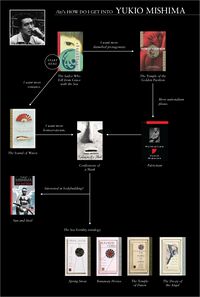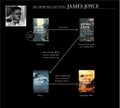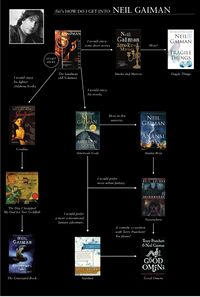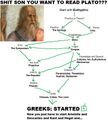Recommended Reading Charts (by Author): Difference between revisions
imported>Latimerious Editing a gallery |
imported>Latimerious Editing a gallery |
||
| Line 167: | Line 167: | ||
Pynchon_guide.png | Pynchon_guide.png | ||
Pynchon, Thomas Overview.png | Pynchon, Thomas Overview.png | ||
Pychon, A Guide.jpg | |||
</gallery> | </gallery> | ||
Revision as of 23:58, 16 November 2019
Albert Camus

Arno Schmidt

Cormac McCarthy

Ernst Jünger
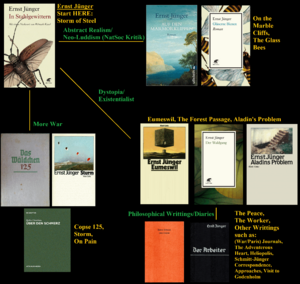
Ernest Hemingway

Franz Kafka

Gene Wolfe

Haruki Murakami
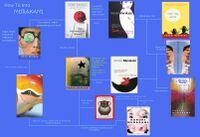
Henry James
H.P.Lovecraft

- Lovecraft is not Edgar Allan Poe; expect no melodrama, no Victorian intellectual/literary masturbation.
- The stories in the Cthulhu Mythos are more accessible to new readers compared with those in the Dream Cycle series. Start reading the former, and if you like it, move to the latter.
- The format of the stories in the Cthulhu Mythos are usually as follows: a slow setup where the character comes across something that does not feel right, followed by the character encountering whatever the setup was all about (like this), and finally, the character getting out of the encounter forever changed by their experience. At this point, the mysteries of the setup are, in a way, solved; you probably will have understood by then why things did not feel right at the beginning.
Take in the prose, especially the "encounters", slowly; the prose is seemingly opaque and verbose, but it becomes very rewarding after getting used to the style. Think about it: Lovecraft does not have (or to be precise, didn't have) at his disposal but the vocabulary of the English language to draw scenes as vivid (and horrific) as--eh, again--this. Start exercising those imagination-muscles of yours, soldier!
- You might wish to check the works of Thomas Ligotti as well.
- You might also wish to read the Dunwich Horror after reading The Call of Cthulhu as well as Haunter in the Dark after The Colour Out of Space.
G.K.Chesterton
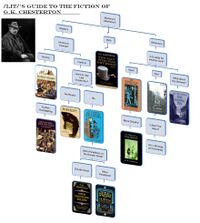
Italo Calvino

James Joyce
-
Ulisses
John Hawkes
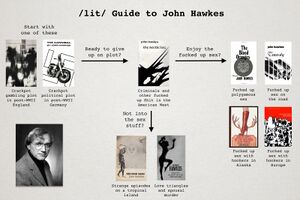
Joseph McElroy

Kurt Vonnegut
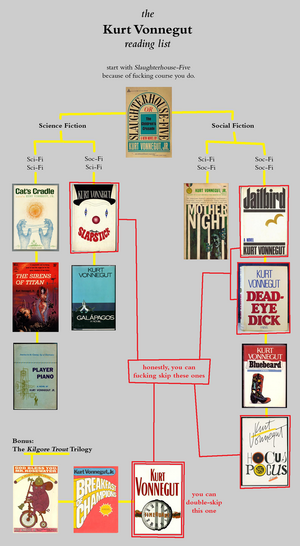
László Krasznahorkai

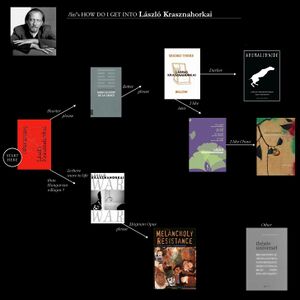
Marilynne Robinson

Marquis de Sade

Max Weber

Natsumi Soseki
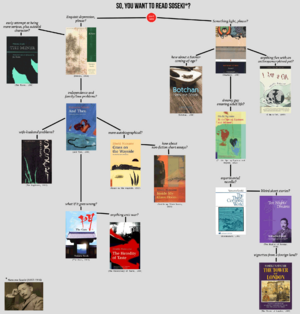
Mikhail Bulgakov
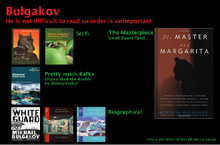
Neil Gaiman
- You do not really have to read through the whole Sandman series (seventy plus issues ignoring the spin-off series) before delving through the rest of his work; the first volume is more than enough to give you a taste and a feeling of Gaiman's style.
Plato
Philip Kindred Dick
Robert Anton Wilson
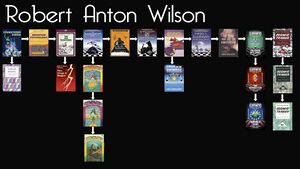
Thomas Mann

Thomas Pynchon
After getting a taste of Pynchon's writing, check the introduction of his short stories (or novellas, depending on your definition of thereof) collection Slow Learner. The rest of the book (that is, the stories themselves) are understandably borderline OK, so do not bother reading them unless you want to see how young Pynchon practiced his trade.
Stanisław Lem
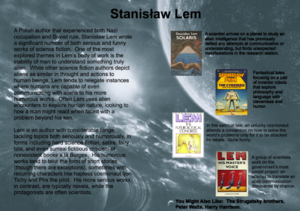
William Borroughs
William Faulkner
William Shakespeare

William T. Vollmann

Vladimir Nabokov
Yukio Mishima
